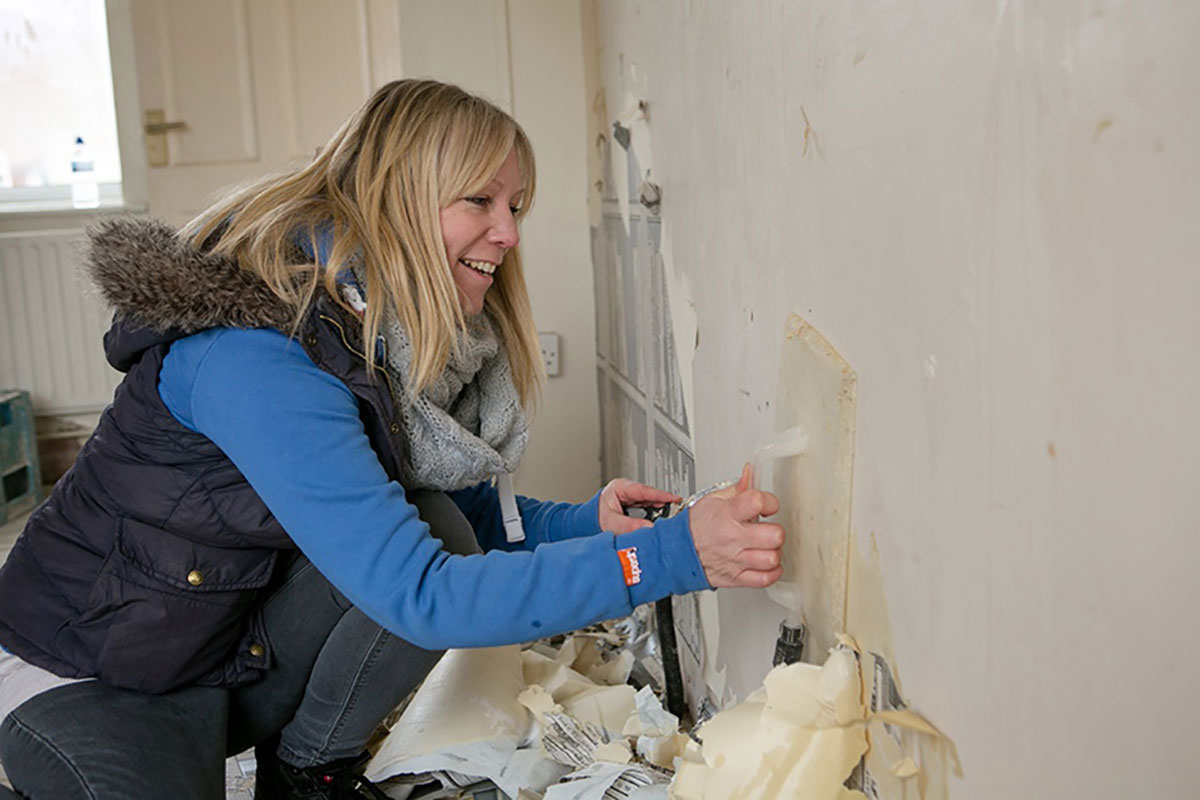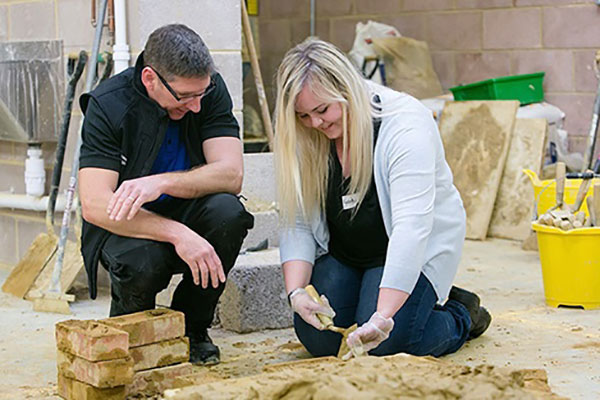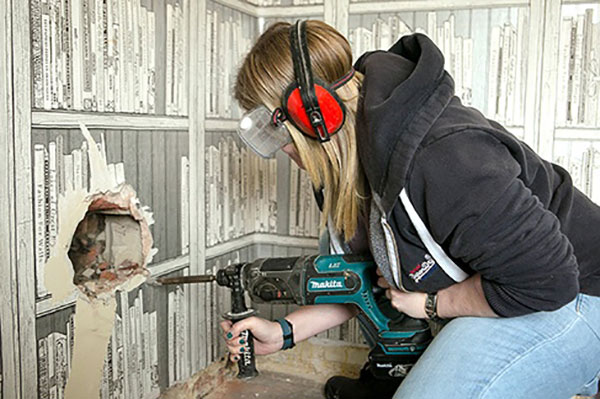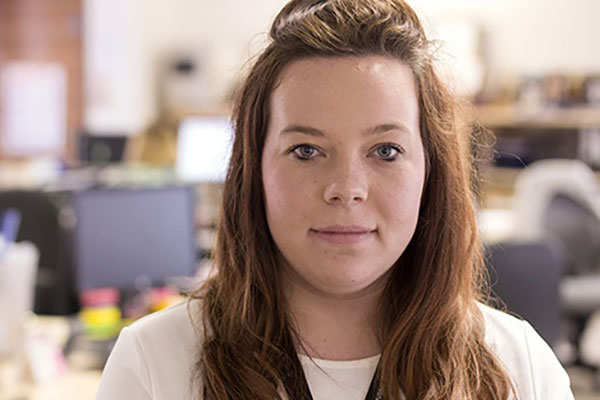You are viewing 1 of your 1 free articles
Laying the foundations
A difficult recruitment landscape has resulted in associations developing bigger and better apprenticeship schemes. Joe Dart talks to the organisations leading the charge
It’s a truism that we are building fewer homes than we need. One of the biggest long-term barriers to getting delivery up to speed is a growing skills gap across the built environment sector, and that includes in housing associations and house builders. The Construction Industry Training Board’s Skills and Training in the Construction Industry 2016 report says 20% of businesses had skills gaps in their workforces.
But with the government finally waking up to the need to focus on training, there could be change in the air. For housing associations facing problematic talent shortages, particularly in areas such as development, the potential benefits of a comprehensive apprenticeship programme are starting to be recognised.
After all, those fresh-faced employees who are now finding their feet will one day be the sector’s leaders. Inside Housing looked at two housing association programmes to find out what they have achieved so far.
Open to all
Sovereign, a 55,000-home landlord operating in the South and South West of England, has been running its own apprenticeship programme since 2012. Over this period it has recruited 52 apprentices. Nine are now in permanent roles, while 25 are still training. This means 65% are still in the business after five years.
Steph Akerman, Sovereign’s learning and development consultant responsible for the apprenticeship programme, says the rationale behind the association launching its own programme was threefold.
“Our strategy was to try and enable our residents into work and also to grow our talent pool from within the organisation.”
Steph Akerman, learning and development consultant, Sovereign
“Our strategy was to try and enable our residents into work and also to grow our talent pool from within the organisation. And the third strand was to bring young people into work,” she says.
Apprenticeships are offered in a number of areas including in its trades, housing, performance, IT, HR and contact centre teams. They are open to everyone, regardless of age, previous experience or background.
Perhaps most importantly, the programme ties in to Sovereign’s efforts to encourage tenants into work, with residents told about vacancies first and invited to apply. The organisation’s employment, training and skills staff are also on hand to assist with tenants’ applications.
Sovereign runs a women in trades programme too, aimed at inspiring more women to take up manual trades as a career choice. It offers taster days in colleges where women can learn more about careers in plumbing, carpentry, brickwork, plastering etc through hands-on sessions. These opportunities have led to work experience and, in some cases, full trainee positions.
Emma Chavagnon previously worked as a police officer and has recently joined Sovereign as a carpentry trainee. “That’s the good thing about Sovereign’s programme – there is that type of opportunity,” she says.
Added value
The recent merger with Spectrum has opened up a number of opportunities for the association to develop its apprentice programme. It has combined with Spectrum’s direct labour organisation, Spectrum Property Care (SPC), which has its own 24-strong apprentice programme working across the business.
“The opportunities it throws for both of us and the organisation [as a whole] is great,” says Ms Akerman.
Jo Billinghurst, apprenticeship officer at SPC, agrees: “Because we are so different, that gives us opportunities to take each other’s strengths.”
“We offer apprenticeships in pretty much every area of our business.”
Sarah Moore, people development manager, Yorkshire Housing
Yorkshire Housing, which owns and manages 18,000 homes, is also making strides in this field. Its apprenticeship programme is particularly impressive thanks to its breadth. “We offer apprenticeships in pretty much every area of our business – from business administration to health and social care,” says Sarah Moore, people development manager at Yorkshire Housing.
The apprenticeship programme initially launched in response to the recession to help its tenants onto the employment ladder. Over the years it has evolved into a much more co-ordinated strategy, one that it says is now integral to the business.
“We started to look at not only why we are doing apprenticeships, and where they fit in across the business, but also what the purpose of them is and what they bring back into the business, and that’s really where we’re focusing our attention going forwards,” Ms Moore adds.
The scheme adds value, too. Yorkshire Housing estimates that the 89 apprenticeship places it has offered since 2008 equates to £200,000 of social value. This figure has been reached through HACT’s social value calculator, which applies a monetary value to each apprentice who works for the business.
READ MORE ABOUT APPRENTICESHIPS:
Additionally, around 70% of people who completed the apprenticeship framework went on to be employed by Yorkshire Housing. It estimates this has saved the business more than £60,000 on recruitment costs.
Yorkshire Housing currently has 25 apprentices on its programme. David Bolton, the landlord’s director of property services, says the aim is to increase that to “around 30 apprentices in the business at any one time”.
Much of the success of its apprenticeship programme has been thanks to the enhanced support the association offers.
There is a structured personal development support course, as well as a mentor and buddy system which connects apprentices with more experienced colleagues.
Attitude shift
The landlord continually monitors the performance of its apprentices against fully qualified colleagues by collecting monthly data on targets. Recent figures suggest apprentices are, on average, achieving the same levels of productivity as qualified colleagues within six to eight months.
A focus on engagement is perhaps the secret to the scheme’s success. Certainly, apprentices who have been through the programme agree that it makes them feel like valued members of the business. Ann-Marie Reed, a former apprentice who is now an income advisor at Yorkshire Housing, says: “I’ve never felt like an apprentice. I was welcomed and felt like part of the team straight away.”
“I’ve never felt like an apprentice. I was welcomed and felt like part of the team straight away.”
Ann-Marie Reed, former apprentice and now income advisor, Yorkshire Housing
Ann-Marie Reed of Yorkshire Housing
It is clear that Yorkshire Housing’s apprentice-led approach has had a transformative effect on the business. Initially the idea of having to train apprentices was met with scepticism by staff, with some even considering them a burden, Mr Bolton says. Over time, this view has completely reversed.
“The organisation has seen what a massive injection of innovation, ideas, enthusiasm and energy [is brought in] the minute our apprentices arrive,” he says. “It’s created a really positive momentum across the organisation.”



